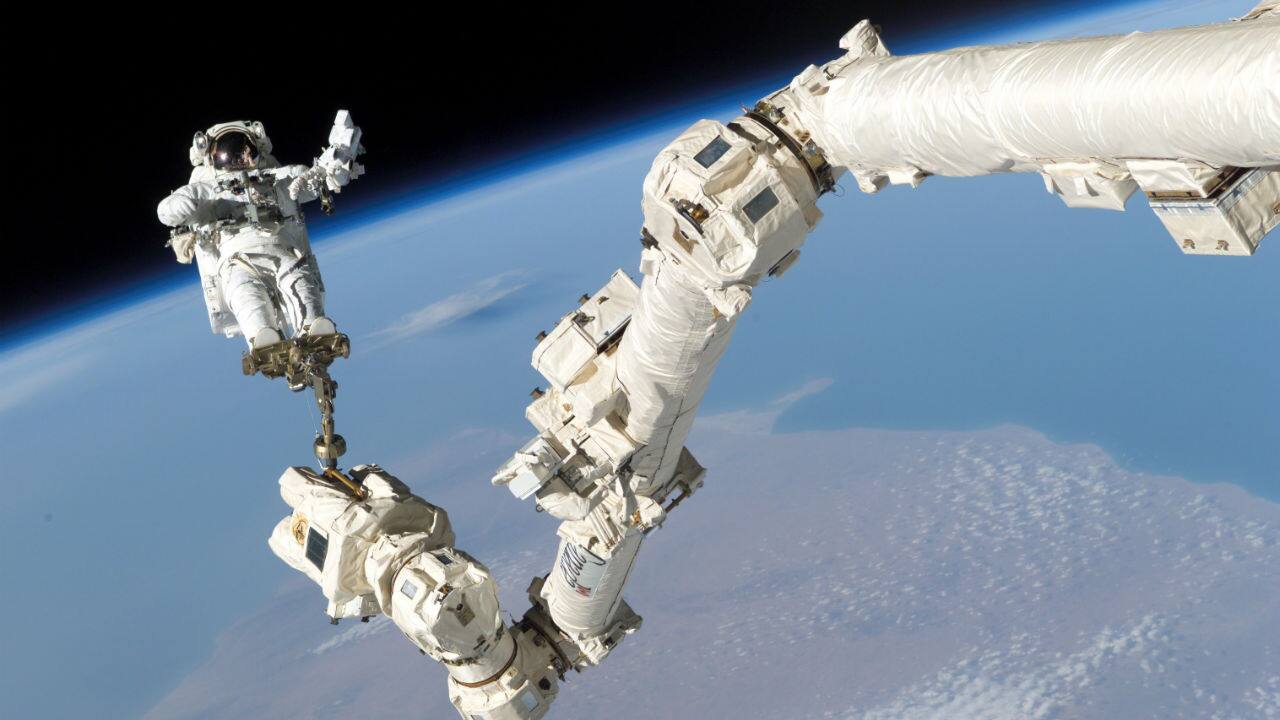UK (Parliament Politic Magazine) – An American firm specializing in organizing journeys to the International Space Station (ISS), Axiom, has initiated plans for this mission. A memorandum of understanding has been established between Axiom and the UK Space Agency, with hopes to materialize this vision.
While the estimated cost of the project may exceed £200 million, the intention is to secure commercial funding, with no reliance on UK taxpayers for financial support. Axiom has confirmed ongoing discussions with corporate and institutional entities interested in providing financial backing.
Axiom’s Ambitious Plans: Creating a Commercial Space Station from the ISS
The last UK astronaut to venture into orbit was Tim Peake, who participated in a mission to the ISS under the European Space Agency (ESA) banner in 2015. Tim Peake expressed his enthusiasm for the project, stating,
“This is an exciting and genuinely unprecedented opportunity. No one has executed a ‘national mission’ of this commercial nature previously. It introduces a novel model and paves the way for the future of space exploration.
Information is currently limited, with neither the crew selection process nor the mission’s destination firmly established.
Presently, Axiom has relied on SpaceX capsules, owned by entrepreneur Elon Musk, to transport astronauts to the International Space Station (ISS) in their organized missions.
However, the proposed UK mission might adopt a different approach.
It could involve a “free-flyer” scenario, where the crew would orbit the Earth in their capsule for a specified duration, conducting scientific experiments and outreach activities, before returning via a splashdown on Earth.
Italian Expertise: Thales Alenia Space’s Role in Axiom’s Space Station Modules
If the mission were to target the ISS, NASA, the U.S. space agency, would impose certain conditions, including the inclusion of an experienced astronaut within the crew. Meeting this requirement poses a challenge as very few UK passport-holders fulfill this criterion, making individuals like Tim Peake an evident choice for the role of commander.
Axiom, established by a former NASA official who once oversaw operations on the International Space Station (ISS), has thus far conducted two missions, with a third scheduled to launch in the coming year.
These initial undertakings have offered spaceflight opportunities for individuals with significant wealth and government-sponsored astronauts who do not belong to the station’s regular crew rotations.
However, for the new space economy in low-Earth orbit to develop sustainably, it must extend its reach beyond billionaires and government funding, encompassing sectors that have traditionally remained uninvolved in space activities.
Tejpaul Bhatia, the Chief Revenue Officer of Axiom, praised the UK Space Agency (UKSA) for its forward-thinking approach. The agency has prioritized the cultivation of private investments to support a burgeoning wave of new space-oriented companies.
“The United Kingdom currently occupies a remarkably distinctive position and assumes a leadership role in the transition toward commercializing space,” Bhatia remarked.
Expanding Access to Space: Axiom’s Mission and European Member States
While Axiom has the capacity to independently organize the mission without relying on support from the UK Space Agency (UKSA), having the agency’s backing adds an extra layer of confidence to the project.
Paul Bate, the CEO of UKSA, emphasized the intricate nature of planning a space mission, involving careful crew selection, thorough training, and ensuring safety at every stage.
The UKSA, along with the European Space Agency (ESA), will play a central role in this process, particularly in providing training. Furthermore, the UKSA aims to contribute scientific expertise by selecting microgravity experiments and exploring areas like aging-related research.
Bate underscored the commercial aspect of this approach, aligning with the core mission of the UK Space Agency. However, the precise launch date for an “Axiom-UK” mission remains uncertain, pending the acquisition of funding and the comprehensive development of the mission plan.
Read More: Sharp Increase in Calls to Modern Slavery Helpline In The UK from Care Professionals
Axiom vs. Public Funding: Contrasting Approaches to Space Exploration
If the mission involves a visit to the space station, it’s worth noting that NASA has limited available slots each year for commercial visitors, albeit with substantial costs, including “board and lodging” expenses well exceeding £100,000 per night per individual.
Axiom is on the verge of initiating the process of attaching modules to the International Space Station (ISS), which will later detach to create an independent commercial station upon the eventual decommissioning of the veteran orbital laboratory.


